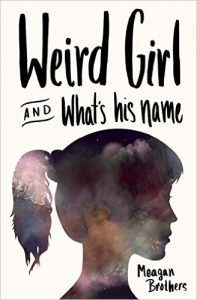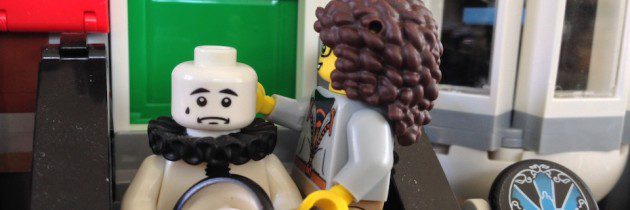Don’t Hurt Your Allies: Thoughts on the North Carolina Boycott
At the end of March, North Carolina’s governor, Pat McCrory, signed one of the nation’s harshest laws against lesbian, gay, and transgender state residents and visitors. The law, HB2, came out of a special session of the legislature, the costs of which were borne by the taxpayers, including taxpayers who would directly suffer from the new restrictions. And these restrictions were quite broad. In addition to requiring people to use bathrooms corresponding to their birth gender in schools and public facilities, the law banned cities from passing nondiscrimination ordinances protecting LGBTQ persons and denied access to state courts for anyone suing for discrimination of any kind. Furthermore, in a bid to gain corporate support, the new law prohibited cities from raising the minimum wage, as so many municipalities (and now states) have done.

Barbara Wright’s CROW is a powerful read set in Wilmington at the time of the 1898 race riot and coup.
McCrory’s support of HB2 shocked a lot of people, in part because of his record of moderation as mayor of Charlotte before becoming governor, in part because North Carolina had traditionally been one of the most progressive states in the South in terms of education, civil rights, and economic opportunity. It was the last of the Southern states to implement Jim Crow statewide, though the white supremacist takeover in 1898 occurred with a spectacular display of violence against the Black business and political leaders and their white allies in Wilmington.
The North Carolina legislature and governor’s decision to restrict the rights of lesbian, gay, and transgender people and to prevent individual cities from offering protection prompted a major outcry. Other cities and states prohibited employee travel to the state on official business. PayPal withdrew plans to build a facility employing 400 people. Bruce Springsteen cancelled his concert in Greensboro. A variety of organizations reconsidered locating conventions and other major events in the state.
Writers spoke out as well. A group of 269 children’s and YA authors signed a letter reaffirming their support for LGBTQIA teens and stating that they would not appear at festivals, conferences and other events in the state, though they would speak at schools and libraries. Their letter was eloquent in its support for teens who regularly experience bullying and discrimination:
We want to tell all of you, our readers, in no uncertain terms, that you are wonderful just as you are. Now more than ever, we stand with you. With all of you. We will continue to stand with you, to stand for you, and to speak out on your behalf against laws and lawmakers that would deprive you of your rights.
The letter also declared support for the embattled teachers and librarians who have stood with LGBTQIA kids:
But you have our word that we will never abandon our thousands and thousands of readers in North Carolina. We stand with those who share our guiding principles and fundamental beliefs of equality, inclusion, and fair treatment. Thus, we will continue to visit your schools and libraries. We will spread kindness and inspire compassion and hope, as we believe books, in their best moments, always have and always will.
I support these sentiments. I also believe that this group failed to live up to the inclusiveness they advocated. While continuing to support schools and libraries, their statement did not protect independent bookstores that have been at the forefront of efforts on behalf of intellectual freedom and human rights. Last Friday, Linda-Marie Barrett, the general manager of Malaprop’s, an independent bookstore in Asheville, North Carolina, wrote a letter to Shelf Awareness describing the effect the authors’ partial boycott has had on her store, a leader in providing diverse books to the community.
Because of HB2, authors are cancelling events at our store. Sherman Alexie is the first to cancel an event we’d scheduled in May. Although we very much respect the reason he cancelled, the result is that we have lost an opportunity to connect this charismatic, inspiring author with those young readers who were going to see him on school visits. We also lost the opportunity to host him at a large venue, which would have connected him with fans in a city that stands with him and could have used his support. Our event could have served as a platform to address an audience that would be empowered by his outrage. We lost all these opportunities, and we are suffering financially because we anticipated selling 300-500 copies of his newest book, Thunder Boy, Jr.

I loved this small press book featuring two teens in a North Carolina town grappling with their sexual identity and friendship.
I do not object to boycotts as a means of changing unjust laws. My husband never gave me an engagement ring and my wedding ring has no diamonds because we were boycotting South Africa, in those days the major source of diamonds. I do object to actions that hurt and weaken allies. The authors’ letter did that in several ways. They did not support the independent bookstores featuring (and hand-selling) books that “spread kindness and inspire compassion and hope,” thus weakening those bookstores and making them less able to do their job. The letter addressed teen readers but did not include many other authors for young readers who are equally dedicated to human rights, including authors based in North Carolina and/or with books set in the state. (One I highly recommend is Meagan Brothers’s Weird Girl and What’s His Name.) Allies were hurt and excluded.
On my Facebook page last week, I asked several writers from North Carolina what they think we should do. These are some of the responses:
“COME! Be with us, speak out, appear with transgender people, go to Raleigh and scream at our idiot governor and the idiot Phil Berger [Speaker of the NC House]…This is killing ALLIES and the very people that are going to vote these numbskulls out in November…”
“Malaprops is my bookstore! I sympathize with both stances. Boycotting the state is bringing attention and urgency to the issue. However, it is hurting the citizens of our state financially, when we are already hurt by this law. Double blow. I think authors should still come, maybe make events fundraisers for local LGBT groups? I’m not sure, this isn’t an easy issue!”
“This is why I have very mixed feelings about the boycott. I think it’s great to have the attention and to know so many people are against this law, but I wish there was a way to target the politicians not the people in NC who don’t support the law or even those who are being targeted by it.”
I think it makes sense to target high-profile events, as Bruce Springsteen did when he cancelled his concert in Greensboro. And withdrawing conventions and major sporting events also makes sense because people coming in from elsewhere (as well as those in the state) would be uncomfortable in the environment created by the new law. But when you know an ally, like Malaprop’s, is the one to suffer, that’s a different story. The need support, not a total withdrawal.







Wow. This is huge. My heart goes out to independent bookstore owners who looked forward to the revenue. But at the same time, I can understand authors who want to stand by their principles. There has to be a middle ground though.
Boycotts shouldn’t target organizations within the country that are specifically working for change. They are the ones that should receive additional — and well-publicized — support. For instance, when I was involved in a solidarity committee along with Chilean exiles seeking to end the Pinochet dictatorship, we imported arpilleras, tapestries created by families of political prisoners and of persons who had been murdered or disappeared. The money from the sales supported both the families and the community-based workshops (often associated with the Catholic Church) where the arpilleras were made.